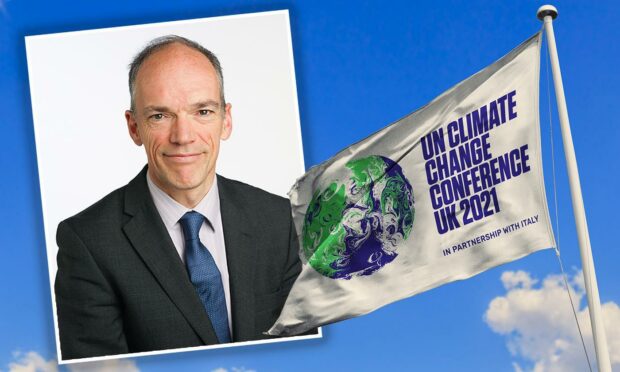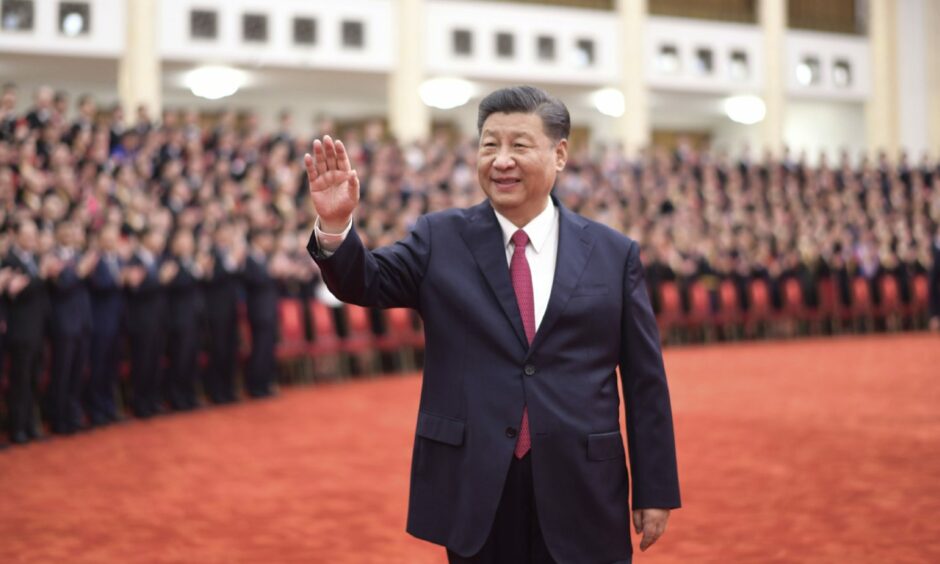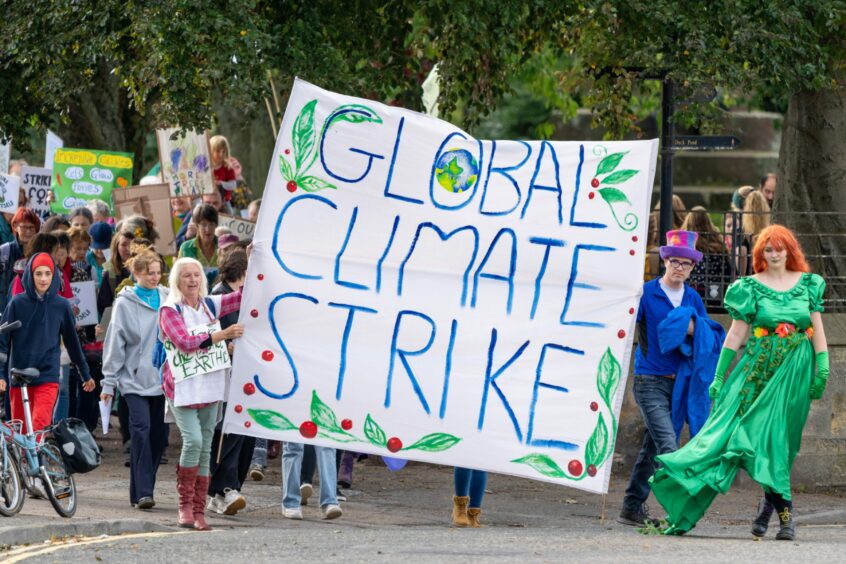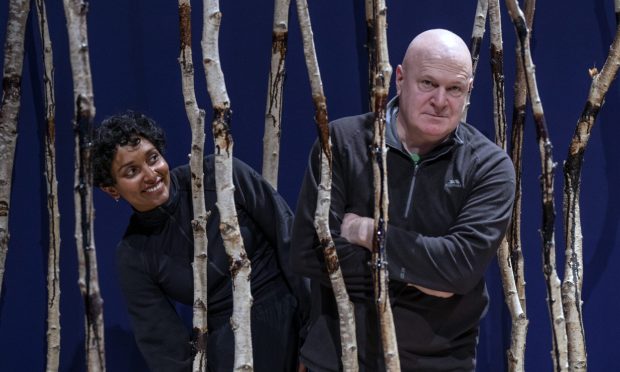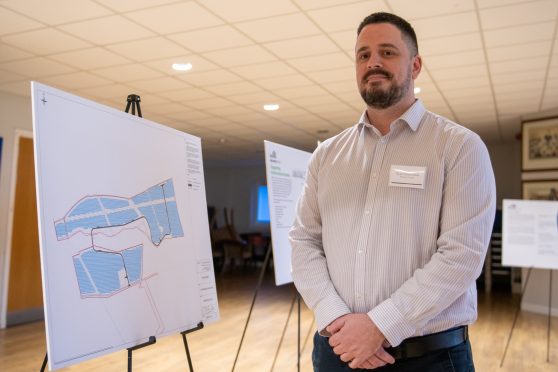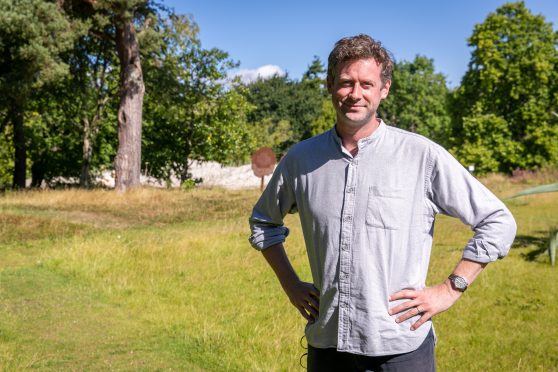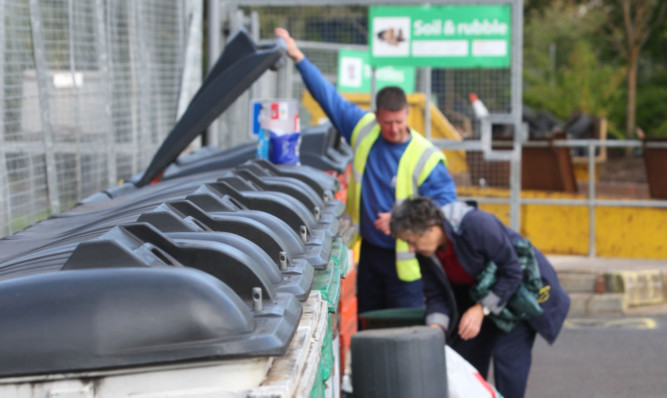Hopes of good deal for the climate emerging from COP26 talks remain high, according to a Dundee international law expert.
Dundee University’s Professor Volker Roeben said the chances of world leaders reaching agreement are good, despite the presidents of major polluters China and Russia snubbing the climate summit.
The professor of energy law, international law and global regulation remains “cautiously optimistic”.
Do snubs from presidents Xi and Putin render COP26 pointless?
China and Russia are among the world’s highest polluters, but their presidents have given COP26 the cold shoulder — raising fears a meaningful deal can not be made.
But Mr Roeben insist that is not the killer blow it may appear on the surface.
“COP26 is part of an ongoing process,” he said.
“China has already made some major pledges to reduce coal and appear to be taking climate change seriously.
“As long as they act on that and on the Paris Agreement, then that is what is important.
“So I am not too worried.”
Delegates from each country will be present at Glasgow.
Mr Roeben said the strength of those delegates will be key.
“We will not know what orders they have until they get here, but it could be that Xi and Putin not being in Glasgow isn’t too big a deal.
“If the delegates are authorised to make big decisions, then that will be enough.”
What role can Scotland play in making a deal at COP26?
While Scotland itself can not legally be a dealmaker at COP26 — that role as sovereign state is fulfilled by the UK — Mr Roeben feels there is still a lot devolved nations and federal states can bring to international agreements.
“It is true that Scotland does not have the legal power to be a signatory, but they can still play an important role through making bilateral agreements.
“Through this they can take the lead and set an example.
“Scotland is already a world leader in renewables, so it’s through discussions and action such as that where they can have influence on a summit such as COP26.”
What is the point of COP26? Hasn’t the Paris Agreement already done the job?
A major breakthrough was COP21, held in Paris in 2015.
World leaders agreed to keep the global temperature rise within 2C, compared to pre-industrial levels.
However, as Mr Roeben puts it, that was just an “agreement in principle”.
The real work started after that.
Among the main items on the COP26 agenda is thrashing out details on so-called National Determined Contributions (NDC).
NDCs contain the detail of what action countries are taking to tackle their own emissions.
“It’s like being a guest to a party and coming empty-handed,” he said.
“You want to bring something to the party, or else you will get cold stares.”
The finer details of NDCs will be examined and opportunities to improve on them explored.
“It’s this, rather than any big announcement or PR stunt that will determine whether COP26 is a success,” Mr Roeben said.
Can an international agreement be enforced?
One criticism of deals such as the Paris Agreement is that countries are beholden to themselves whether or not they act on it.
Mr Roeben said discussions are taking place to give a COP26 deal “some teeth”.
“One way of doing that is through clauses that says you are committed to the agreement and if you can’t stick to the deal then there will be measures such a finances being withheld.
“These are discussions that’s an interesting development.”
A similar clause was being considered for the Paris Agreement, but ultimately did not make the cut.
Mr Roeben adds: “No one country can tackle the climate problem by itself.
“We need people to come together in one place to work this out and make these deals happen. That’s why COP26 is so important.”
Why is Mr Roeben still optimistic?
The Dundee professor — who is also a visiting professor at the China University of Political Science and Law in Beijing — thinks that while the past year has shown the seriousness of climate change, those worrying episodes have also made people take the issue more seriously.
“I think that even when compared to last year, people really understand how important it is that meaningful action is taken.
“There are still big problems, but it was never going to be easy.”
